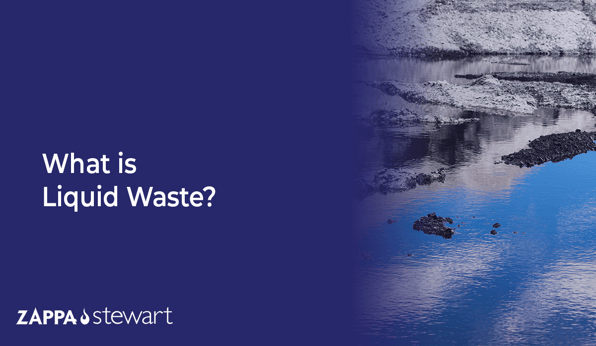An Unbiased View of Reclaim Waste
An Unbiased View of Reclaim Waste
Blog Article
Not known Facts About Reclaim Waste
Table of ContentsNot known Details About Reclaim Waste Reclaim Waste Things To Know Before You BuyIndicators on Reclaim Waste You Need To KnowThe 15-Second Trick For Reclaim WasteReclaim Waste Fundamentals Explained
Domestic sewer waste refers to the waste and items from a property septic container. The appropriate monitoring and disposal of domestic sewer waste call for liquid waste to be transferred to a sewer treatment plant where the proper methods and devices are applied to purify and dispose of waste.
Industrial waste typically includes potential risks, such as combustible products or a mix of liquid and solid waste products, and requires a more advanced and detailed disposal procedure. The disposal of commercial waste generally entails the filtration of waste before transportation to make sure secure and correct disposal. Industrial waste is created from results and overflow of commercial processes and production.
This sort of waste can not utilize the same sewer management transport or procedures as septic or industrial liquids. The hazardous waste administration process needs the examination and screening of liquid waste before it undergoes the disposal process (liquid waste disposal). Drainage waste is the fluid waste that originates from drainage and excess stormwater in very inhabited locations or cities
Runoff waste can cause contamination and flooding if not dealt with properly. Find out more about sewage system cleaning and waste monitoring. Making sure correct waste monitoring can protect against calamities and minimize environmental harm. Both people in domestic settings and experts in business or production sectors can gain from recognizing the procedures and policies of fluid waste monitoring.
8 Easy Facts About Reclaim Waste Shown
Contact PROS Solutions today to find out about our waste monitoring and disposal services and the correct means to take care of the fluid waste you create.
(https://moz.com/community/q/user/reclaimwaste1)Do you recognize what occurs to your water when you end, flush the toilet or drain pipes the cleaning device? No? Well, it deserves understanding. This supposed 'wastewater' is not only a vital source however, after therapy, will be launched to our land, waterways or the sea. Used water from toilets, showers, bathrooms, kitchen area sinks, washings and industrial processes is referred to as wastewater.

water used to cool equipment or tidy plant and tools). Stormwater, a kind of wastewater, is overflow that streams from agricultural and metropolitan locations such as roofings, parks, yards, roads, paths and seamless gutters into stormwater drains, after rainfall. Stormwater flows unattended directly to neighborhood creeks or rivers, at some point reaching the ocean.
Our Reclaim Waste Ideas
In Queensland, a lot of wastewater is treated at sewage treatment plants. Wastewater is delivered from domestic or industrial sites via a system of blog sewage systems and pump terminals, recognized as sewage reticulation, to a sewage therapy plant.
The Department of Natural Resources encourages city governments about handling, operating and maintaining sewerage systems and therapy plants. In unsewered areas, city governments may call for householders to set up individual or home sewer therapy systems to treat domestic wastewater from commodes, cooking areas, bathrooms and washings. The Division of Natural Resources authorizes the usage of family systems when they are shown to be reliable.
In some new class, treatment of some stormwater to remove litter, sand and gravel has actually begun making use of gross contaminant catches. Wastewater treatment takes place in 4 stages: Removes strong matter.
Utilizes small living microorganisms recognizes as micro-organisms to break down and remove continuing to be liquified wastes and fine particles. Micro-organisms and wastes are included in the sludge.
About Reclaim Waste
Nutrient elimination is not readily available at all sewer therapy plants since it requires expensive specialized tools. Clear fluid effluent generated after treatment might still have disease-causing micro-organisms - liquid waste removal melbourne.

A lot of wastewater streams right into the sewerage system. Under the Act, regional governments provide approvals and licences for eco relevant activities (Ages) involving wastewater releases that may have a local effect.
Everything about Reclaim Waste
Tracking supplies accurate details about water top quality and can validate that licence conditions are being met. The information obtained through monitoring offers the basis for making water high quality decisions.
Report this page